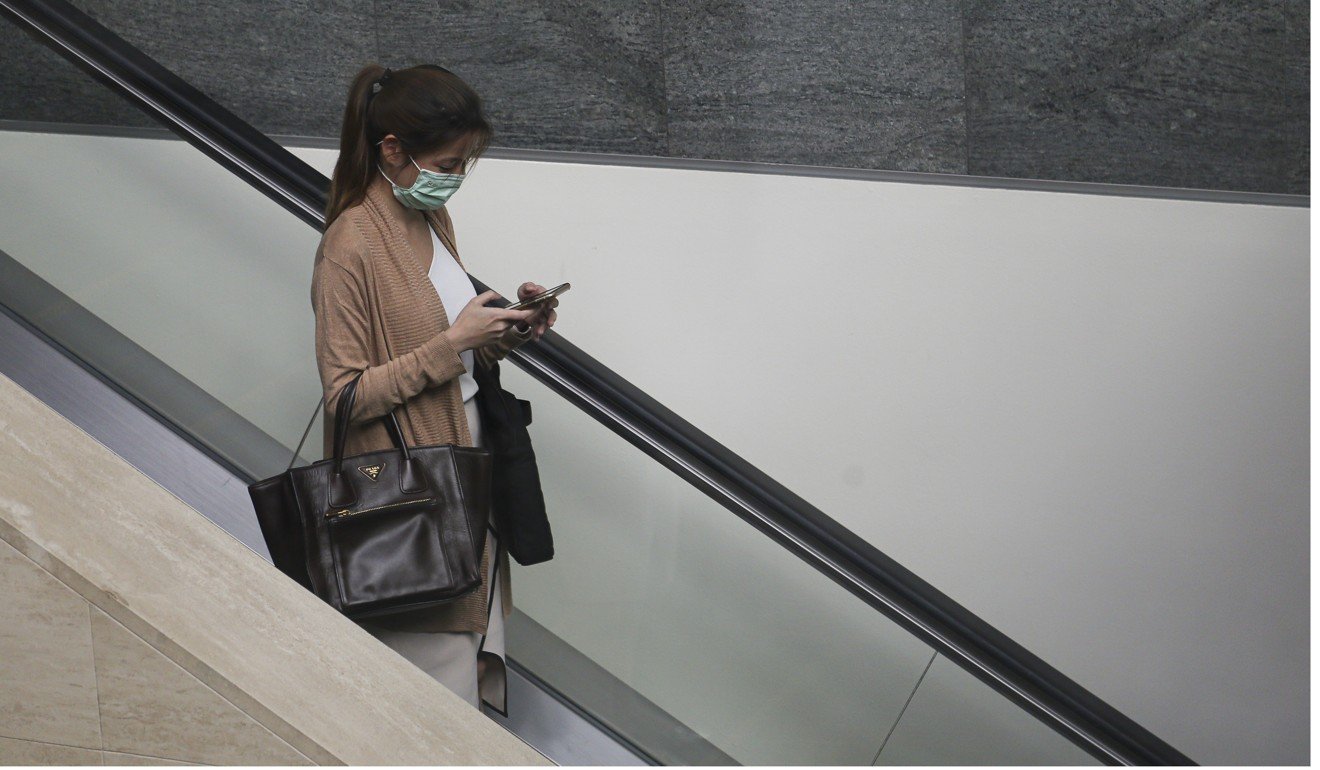Coronavirus: cleaning your phone more effective than wearing a face mask. Here’s how to do it
- Singapore’s health ministry said there is no evidence the coronavirus is airborne, and that face masks are not the most effective protection
- Smartphones are among the dirtiest items people own, and are often held up to users’ eyes, noses and lips – key points for coronavirus infection

Regularly cleaning your phone and washing your hands are a better way to fight the coronavirus spread than wearing a face mask, Singapore’s health ministry said on Wednesday, after an advisory by four doctors urging people to don masks while in public went viral on WhatsApp.
The advisory, dated February 10 and signed by doctors Colleen Thomas, Judy Chen, Tham Hoe Meng and Lim Pin Pin, called for Singaporeans to “wear a mask always when leaving home” and avoid mingling in public, claiming this could stop community spread of the coronavirus within two weeks.
The doctors added that those who ran out of masks should make new ones out of cloth, scarves or paper, to create a barrier of protection when interacting in close quarters with others, given that some carriers of the disease did not display symptoms of illness.
Chen told Black Dot Research on February 12 that members of the public who owned masks did not understand how protective they were, or were “complacent” enough to go without them in public areas.
However, the Singapore Ministry of Health’s director of medical services, Kenneth Mak, said at a press conference on Wednesday that despite “a lot of well-intentioned advice” from various quarters, including doctors, there was no evidence that the virus was airborne, meaning masks were not the most effective method of protection.
He added that a more important task was for people to clean their mobile phones.
“Be aware of things you commonly touch. The thing most commonly touched is your phone, so wearing a mask is not the most important thing,” The Straits Times quoted him as saying.
Smartphones are among the dirtiest items a person owns, due to how often they are handled, and the fact that many people bring their phones to the toilet, where faecal matter often collects.
Worse, these phones are often held up to our eyes, nose and lips – key points where the coronavirus infects the human body.
Various scientific studies have found that smartphones contain more germs than toilet seats – meaning a quick and immediate way to limit contamination is to avoid taking your phone to the toilet.
According to a 2018 study by four researchers from the Massachusetts Institute of Technology, sanitising phones with a UV smartphone sanitiser device was the most effective method of killing germs.

Using an alcohol solution was also effective, the study said, adding that the crevice between phones and phone cases contained significantly more bacteria than the screen.
Microbiologist Charles Gerba told Health that this alcohol solution can be made at home by combining water (60 per cent) and rubbing alcohol (40 per cent), them wiping the phone with a microfibre cloth, cotton pad or cotton bud slightly dampened with the mixture.
Both Gerba and CNet said to avoid spraying the alcohol solution on the phone directly or using antibacterial wipes on the screen, as this could strip off its water and oil-proof coating.
However, antibacterial wipes can be used to clean the phone case.
According to CNet, other items that should not be used to clean a phone include window cleaner, kitchen cleaner, make-up remover, dish soap, hand soap, and vinegar.
When no other sanitisation options were available, even just physically wiping the phone with a microfibre cloth also provided some decontamination, the 2018 study found.
This article originally appeared on Business Insider.